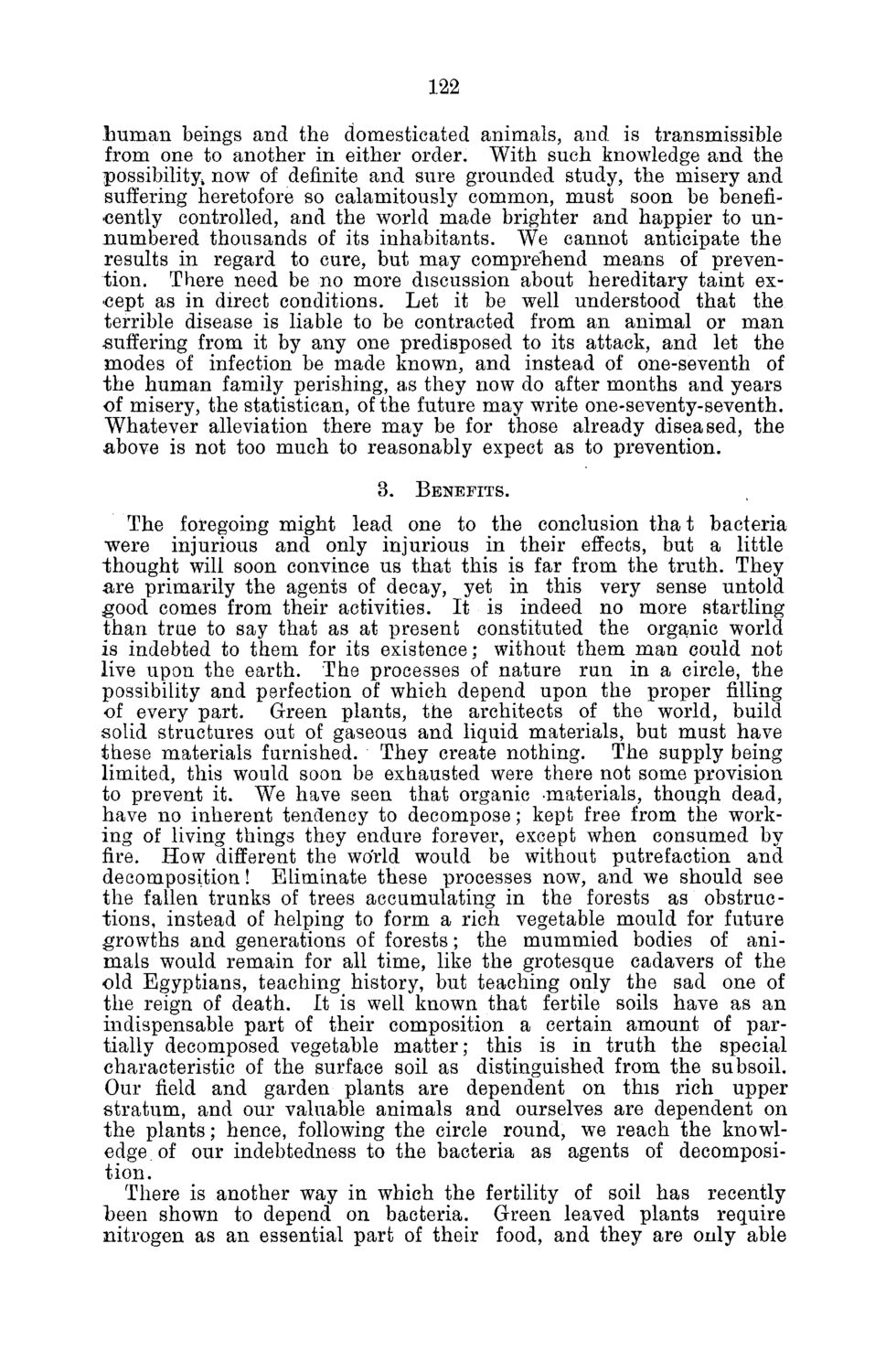| |
| |
Caption: Board of Trustees Minutes - 1882
This is a reduced-resolution page image for fast online browsing.

EXTRACTED TEXT FROM PAGE:
122 human beings and the domesticated animals, and is transmissible from one to another in either order. With such knowledge and the possibility; now of definite and sure grounded study, the misery and suffering heretofore so calamitously common, must soon be beneficently controlled, and the world made brighter and happier to unnumbered thousands of its inhabitants. We cannot anticipate the results in regard to cure, but may comprehend means of prevention. There need be no more discussion about hereditary taint except as in direct conditions. Let it be well understood that the terrible disease is liable to be contracted from an animal or man -suffering from it by any one predisposed to its attack, and let the modes of infection be made known, and instead of one-seventh of the human family perishing, as they now do after months and years of misery, the statistican, of the future may write one-seventy-seventh. Whatever alleviation there may be for those already diseased, the -above is not too much to reasonably expect as to prevention. 3. BENEFITS. The foregoing might lead one to the conclusion t h a t bacteria •were injurious and only injurious in their effects, but a little "thought will soon convince us that this is far from the truth. They •are primarily the agents of decay, yet in this very sense untold good comes from their activities. It is indeed no more startling than true to say that as at present constituted the organic world is indebted to them for its existence; without them man could not live upon the earth. The processes of nature run in a circle, the possibility and perfection of which depend upon the proper filling of every part. Green plants, the architects of the world, build solid structures out of gaseous and liquid materials, but must have these materials furnished. They create nothing. The supply being limited, this would soon be exhausted were there not some provision to prevent it. We have seen that organic materials, though dead, have no inherent tendency to decompose; kept free from the working of living things they endure forever, except when consumed by fire. How different the world would be without putrefaction and decomposition! Eliminate these processes now, and we should see the fallen trunks of trees accumulating in the forests as obstructions, instead of helping to form a rich vegetable mould for future growths and generations of forests; the mummied bodies of animals would remain for all time, like the grotesque cadavers of the old Egyptians, teaching history, but teaching only the sad one of the reign of death. It is well known that fertile soils have as an indispensable part of their composition a certain amount of partially decomposed vegetable matter; this is in truth the special characteristic of the surface soil as distinguished from the subsoil. Our field and garden plants are dependent on this rich upper stratum, and our valuable animals and ourselves are dependent on the plants; hence, following the circle round, we reach the knowledge, of our indebtedness to the bacteria as agents of decomposition. There is another way in which the fertility of soil has recently been shown to depend on bacteria. Green leaved plants require nitrogen as an essential part of their food, and they are only able
| |